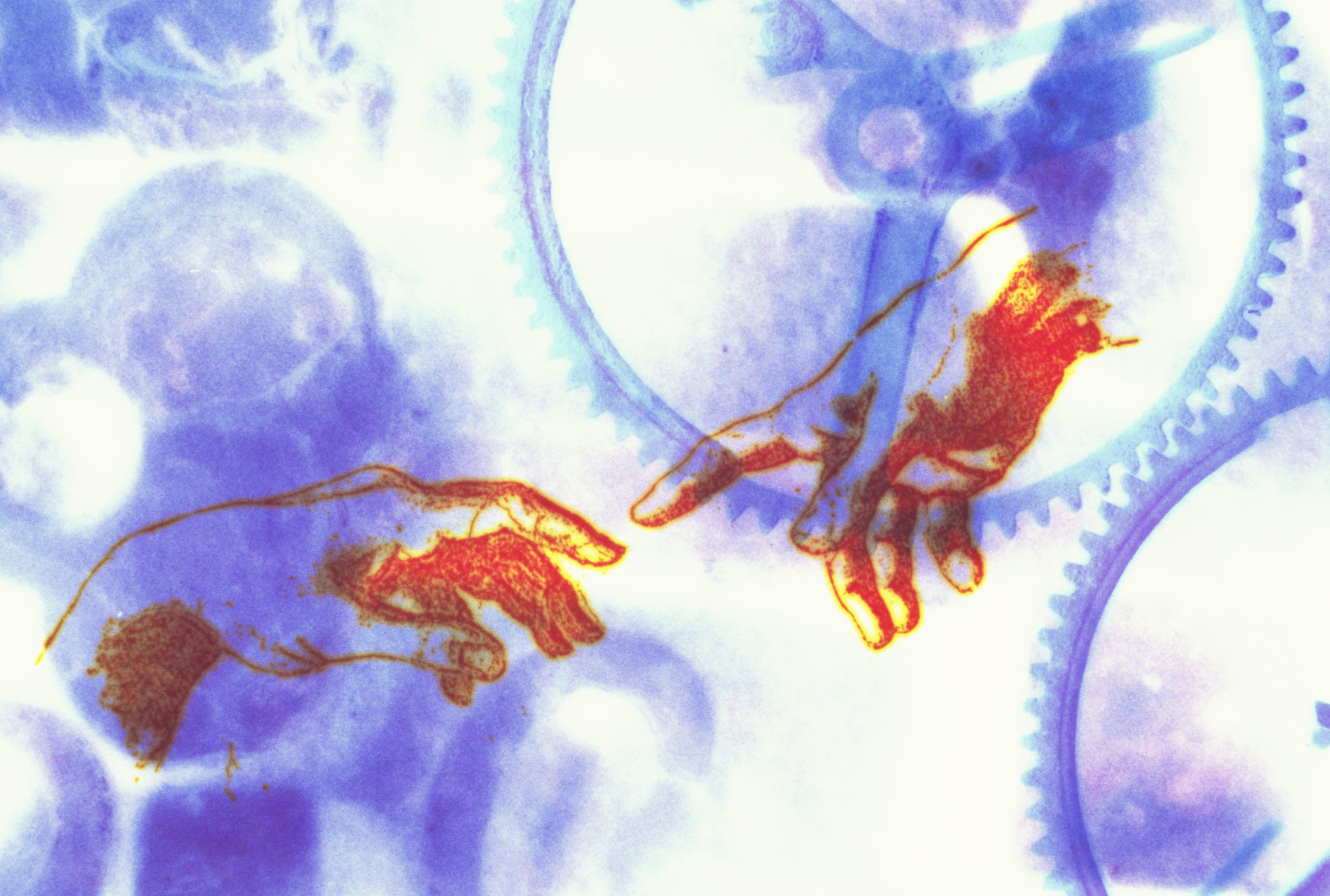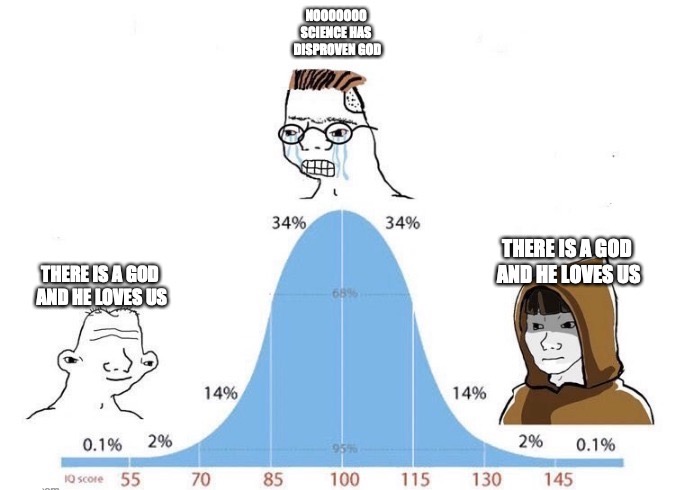Science makes faith plausible, not impossible.
Ripe for Revival

The Secret Knowledge is the antidote to lostness.
This feature is devoted to discussing Andrew Klavan’s new book, The Truth and Beauty. It is available for purchase here.
Twelve years before his suicide, author and essayist David Foster Wallace characterized the feeling of a generation: “There’s something particularly sad about it, something that doesn’t have very much to do with physical circumstances, or the economy, or any of the stuff that gets talked about in the news. It’s more like a stomach-level sadness. I see it in myself and my friends in different ways. It manifests itself as a kind of lostness.”
That was in 1996. Since then, that feeling of “lostness” has only intensified. Young people are anxious, depressed, lonely, and suicidal. They’re unsatisfied and confused. Something’s not right and they know it. The existential question lingers: is this really all there is?
It’s the same question that draws thousands to packed auditoriums to hear Jordan Peterson speak. There’s a craving for something more. According to Vox’s Tara Isabella Burton, “Peterson has tapped into something very real, very necessary, and very strong: a legitimate spiritual hunger for meaning.” The Atlantic’s Helen Lewis explains further: “For a generation that has lost its faith in religion and politics, [Peterson] is one of notably few prominent figures willing to confront the most fundamental questions of existence: What’s the point of being alive? What kind of personal journey endows our existence with meaning?… He doesn’t offer get-rich-quick schemes, or pickup techniques…. He promises that life is a struggle, but that it is ultimately worthwhile.”
Peterson is an alarm bell of sorts, awakening people to their own thirst for meaning. He advocates responsibility as a means of finding it—but even responsibility can’t satisfy completely. Peterson is missing something.
Enter Andrew Klavan with the Secret Knowledge: there’s a God, He created you to reflect His nature, and He offers you soul-level satisfaction.
Peterson’s argument is a practice in self-delusion if it occurs in a godless universe. Without God, materialists are right: it’s just chaos all the way down. There is no purpose, no meaning. Some may protest: sure, there’s no objective meaning, but can’t you invent your own? You could, but it would be just that—an invention. It wouldn’t be real.
Even Absurdist philosophers who affirm a meaningless universe recognize an innate human desire for meaning. People have a strong intuition that life is for something. And if life truly is for something and you go around living as if it were not, then you might end up a bit lost.
The Halfway House
Indeed, as Nietzsche forewarned, the gradual decline of religious conviction has left mankind grasping for something—anything—to replace the God whom we have killed. The 20th century saw bloody attempts to bring heaven down to Earth in the form of Communism, Nazism, and Fascism. Still today, totalizing ideologies are manufactured to explain the world and supply meaning. Wokeness is just the latest iteration of man’s replacement religion.
These are imitations of the Truth. They don’t cure that melancholic sense of “lostness” Wallace described all those years ago. But the Secret Knowledge does.
One of the draws to Peterson is the practicality of his advice. “Clean up your room.” “Tell the truth.” “Don’t do things you know to be wrong.” For all his philosophizing, his guidance is simple and actionable. So is the Secret Knowledge, and it’s summed up in the words of the Word made flesh: “Follow me.”
When you want to become a good electrician, you apprentice under a master electrician. You follow him and copy what he does. When you want to become a good person, to participate in eternal life, you apprentice under Jesus. You ask “what would He do in this situation?” and you mimic His practices.
What Klavan calls “Elsewhere”—the escape from dystopia—is not an actual place; it’s a way of being. Christian author John Ortberg argues that “Salvation doesn’t mean simply being rescued from the consequences of our wrong choices…[nor is it] primarily a matter of going to the good place. It’s about becoming good people.” Through imitation of Jesus, a more fulfilling life is available. If God created you to reflect His divine nature, then emulating Him is the fulfillment of your telos. By committing to being fully human, you live in harmony with the way you were designed.
Klavan is right—that message shouldn’t be kept secret any longer. Rule 4 of Peterson’s Beyond Order (2021) points out that “opportunity lurks where responsibility has been abdicated.” And he should know. Peterson’s staggering success is largely the result of the avoidable failure of others—the ones who possess the Secret Knowledge and have been changed by it, but have chosen to keep it a secret. This cannot go on.
Led Back by Letters
Many have been introduced to the Secret Knowledge not through church, but through literature. C.S. Lewis, the preeminent Christian apologist, was gradually drawn up from atheism by his favorite poets and scholars. Referring to Christian writer George MacDonald’s Phantastes, he said, “what it actually did to me was to convert, even to baptize…my imagination.”
Another atheist turned priest writes that even as an unbeliever, “I discovered a surprising love of the Biblical literature, and of those existentialist philosophers who took it seriously. Writers such as Dostoevsky and Kierkegaard brought it to life for me.”
There’s also John Stuart Mill. After suffering a mental breakdown, Mill read Christian poet William Wordsworth and it restored his mind. As Klavan put it years ago, “Through his understanding of the imagination and its interplay with reality, [Wordsworth] led even unbelievers back to their souls.”
Lostness itself represents not just decline, but potential. Ironically, the growing sense that material prosperity cannot satisfy is itself the necessary precursor for revival. The lack of meaning and purpose–and the despair that comes with it—provide fertile ground for the Secret Knowledge to proliferate. Today’s writers and thinkers must undertake the project. They must take the lost by the hand and, like Wordsworth, lead them back to their souls.
The American Mind presents a range of perspectives. Views are writers’ own and do not necessarily represent those of The Claremont Institute.
The American Mind is a publication of the Claremont Institute, a non-profit 501(c)(3) organization, dedicated to restoring the principles of the American Founding to their rightful, preeminent authority in our national life. Interested in supporting our work? Gifts to the Claremont Institute are tax-deductible.
When the church falls captive to woke ideology, secular truth-tellers win the day.
An alternative to dystopia.



